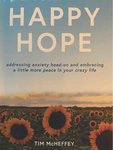

The familiar melody likely just popped into your head—we’ve all heard it so many times this past holiday season, and we want to believe it, because we all want to be, well… happy. Yet, it is no secret that this season is even tougher for many in our own neighborhoods. For decades, folks have been using the phrase “holiday blues.” And just because we have reached the New Year does not mean we are all over it. It is still very much a part of January and February.
“The holidays are usually viewed as a time of happiness and rejoicing,” according to verywellmind.com. “But for some people, it can be a period of painful reflection, sadness, loneliness, and depression.” Holiday blues is not officially recognized by mental health clinicians as a diagnosis. But it feels quite real for those who say they experience it.
Many therapists agree that for us New Yorkers, the holidays coincide with a very cold winter. “Entering what should be a joyous time may be challenging and overwhelming for those dealing with seasonal sadness or any mood disorder,” according to a clinical social worker (who preferred to remain anonymous). “Holidays are cheerful for many, but painful for others who might not have close families or friends to celebrate with. Hope is essential,” she continued. “It keeps us going. It’s what gets us out of bed in the morning. Being kind is essential.” “Happy Hope” is a great start.
“Happy Hope… Addressing Anxiety Head-On and Embracing a Little More Peace In Your Crazy Life,” makes no bold promises, according to Center Moriches author Tim McHeffey. He says we are all searching for peace in a wacky world, and some of us just make it look easier. “But we are all trying to cope,” according to McHeffey, “and the optimal method for this is hope.” There is a powerful ingredient in this recipe for hope. That is to be happy. “Most people are not happy,” says Tim McHeffey. “It is supposed to be our natural state, but it eludes us most of the time.” This is where “Happy Hope” begins.
“Happy Hope” (the initial, softcover edition) is only available at Waterdrinker Farm in Manorville, which will reopen in the spring. (The e-book release date was Dec. 10). Waterdrinker owner Marc Weiss did the artwork for the book. “Marc is one of the best graphic guys in the business,” said McHeffey. “And when he suggested using a Waterdrinker sunflowers photo for the cover, I knew we had simpatico.”
“Tim has a great message,” shared Weiss. “It was a pleasure to collaborate on this worthy project. So glad we are offering it for sale in our Gift Barn, both for Christmas and again in tulip season!”
Just as people “make their own good time,” “Sometimes we make our own bad times as well,” said McHeffey. “ ‘Misery loves company’ is an age-old adage. If people have problems (and we all do), the human, inherent condition is to take some solace in knowing we are not alone. It’s actually a little sad, but it makes people feel a bit less lonely if they know that others share their woes.” McHeffey shared another whimsical passed-down quote that he often shares in his talks: “Don’t complain. Eighty percent of people don’t care, and the other 20 percent are glad you have the problems that you do.” In presenting Workplace Communication seminars for decades, McHeffey speculates why this might be so. “Mostly when folks ask how each other are doing, the answers are ‘not bad’ or ‘doing okay.’ If the common answer was ‘Doing great!! I can’t believe how terrific life is!,’ well, that person might not have too many friends. It would be perceived as obnoxious, and jealousy is a frequent feeling, too.” But McHeffey believes there is an even deeper reason: “If we show great happiness and demonstrate it with big emotions, and we keep ourselves on that high… all that is fine until something bad in life happens. And then people feel like they have a lot farther to fall. And that is a scary sentiment. So most folks keep themselves on the lower end of the emotion scale: not bad, doing okay, hanging in there.”
“Happy Hope” does not fall into a religious category. McHeffey believes that many have been turned off by this genre. But statistically, readers are craving spirituality. The small volume approaches questions like: Why are we really here on earth? What does goal setting and resetting have to do with happiness? Why are some people so mean? Why are so many of us afraid of everything? Is God (whatever you conceive Him to be) nice? Is competition good or bad? Is magic real? The author believes that when people pose provocative questions, we can work out our own answers—and ultimately become just a bit happier.
Life is full of interesting connections, and McHeffey and Weiss’s meeting was serendipitous. McHeffey started helping out at the farm originally as a hayride entertainer. Weiss often shared his observations of what the outdoors could do for the soul. During the thick of COVID, when we were all trying to go about our lives, one of these reflections was “how seeing a field of tulips brought hope to so many people,” according to Weiss, “when the world seemed a little crazy.” Lady Bird Johnson said back in 1965: “Where flowers bloom, so does hope…”
Experts conclude that we can alleviate some of our own holiday and wintry blues by breaking up daily routines (like getting out of the house). Thinking about what you might want to accomplish in the New Year can help as well. And allow additional time to rest and reset. “Towards the end of a long, cold span of months,” Weiss added, “it’s easy to start feeling like Bill Murray in ‘Groundhog Day.’”
McHeffey, who is a full-time business professional, is careful not to mix spirituality with his marketing and management courses. “But being positive and friendly and just continuing to do the right thing is perennial,” McHeffey shared. “And we could all agree that feeling a bit more hopeful in every part of our lives can’t hurt. You gotta hope to cope,” McHeffey concluded. “It’s a start, anyway.”
Comments
No comments on this item Please log in to comment by clicking here